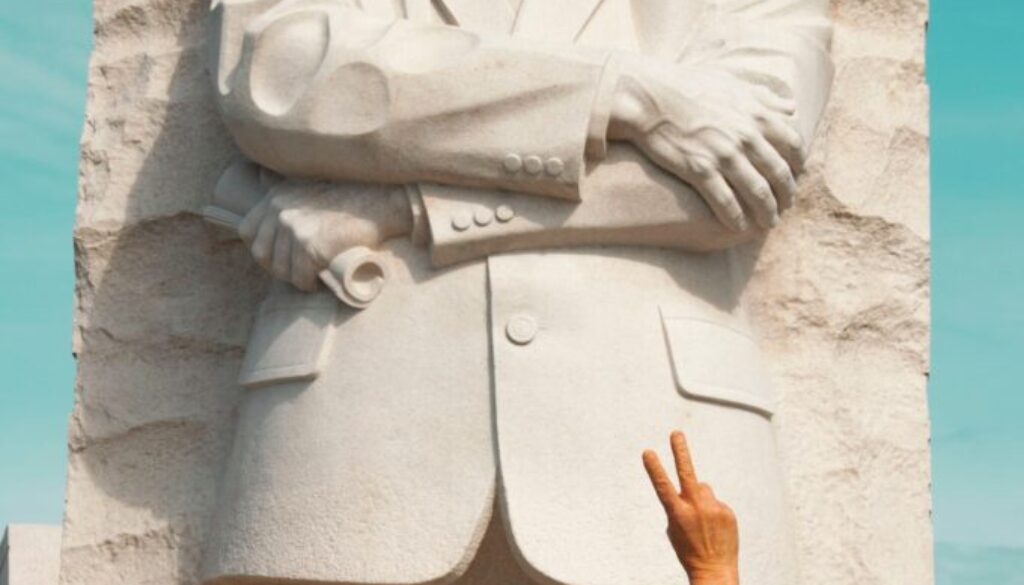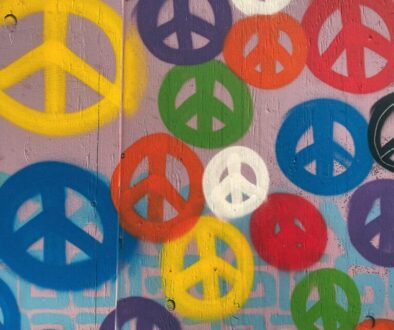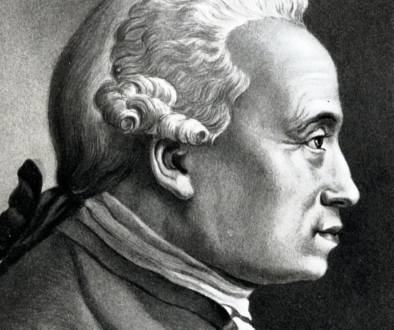“What is your life’s blueprint?” Life design according to Martin Luther King Jr
Martin Luther King, and his philosophy of non-violence is largely influenced by virtue ethics, a philosophical theory that emphasises the role of character and virtue in moral decision making. Virtue ethics is often contrasted with other ethical frameworks that focus on what actions are right or wrong. Instead, virtue ethics is concerned with how you live your life. The basic idea is that there are certain virtues that are essential to a good life, and that by developing these virtues, you will become a good person. This might sound like a simple task, but it’s actually quite difficult. Virtue ethics requires that you think about your life as a whole and strive to develop the virtues that are most important to you. It’s not enough to simply do the right thing in any given situation; you also need to have the right attitude and approach to life. Virtue ethics is about becoming the best person you can be, and that’s a lifelong journey.
Martin Luther King Jr. once said, “If you don’t have a blueprint for your life, you will become part of someone else’s.” This is an important statement that applies to everyone, no matter what age or stage of life they are in. A blueprint is a plan or a set of guidelines that helps you achieve your goals. It can be something as simple as a list of things you want to do before you die, or it can be a detailed plan of action for how you’re going to achieve your dreams. Either way, having a blueprint gives you a sense of direction and purpose. It helps you stay focused on what’s important, and it gives you something to look back on when you feel like you’re lost. In one of his speeches, King discusses with his young audience the importance of having a blueprint in life, and provides three key things that ought to make up our life’s blueprint.
“Now, each of you is in the process of building the structure of your lives. And the question is whether you have a proper, a solid and a sound blueprint, and I want to suggest some of the things that should be in your life’s blueprint…”
“A deep belief in your own dignity, your own worth, and your own-ness…
Don’t allow anybody to make you feel that you are nobody. Always feel that you count, always feel that you have worth and always feel that your life has ultimate significance.”
We all have moments in our lives where we feel good about ourselves and others where we don’t. When we feel good about ourselves, it shows in our behavior. We are confident, Fuller of energy and seem to attract more good things into our lives. On the other hand, when we don’t feel so good about ourselves, it’s hard to fake it. We may avoid people and opportunities, start to believe negative things about ourselves that aren’t true and end up feeling even worse. Why is self worth so important? Because it has a big impact on the quality of our lives. When we feel good about ourselves, we are more likely to take care of our health, be productive citizens and reach our goals. We also tend to be happier, have healthier relationships and be more resilient when bad things happen. So how do we make sure our self worth stays high? Here are a few ideas:
- Find things you’re good at and do them often
- Recognise your accomplishments, no matter how small
- Spend time with people who make you feel good about yourself
- Treat yourself with kindness and respect
- Forgive yourself for your mistakes

“You must have as a basic principle, the determination to achieve excellence in your various fields of endeavour…
you’re gonna be deciding as the days and the years unfold. What you will do in life, what your life’s work will be. And once you discover what it will be set out to do it and to do it well. And I say to you, my young friends, that doors are opening to each of you, doors of opportunity are opening to each of you that were not open to your mothers and to your fathers and the great challenge facing. It’s to be ready to enter these doors as they open.”
There’s no denying that life can be tough. We all face challenges and obstacles, and sometimes it can feel like we’re just struggling to keep our heads above water. However, it’s important to remember that life is also a gift. It’s a precious opportunity to experience all the joy and beauty that the world has to offer. That’s why it’s so important to strive for excellence in everything we do. When we set our sights high and commit ourselves to excellence, we open up a world of possibilities. We give ourselves the chance to truly thrive and reach our full potential. Excellence is its own reward, but it also leads to a more fulfilling, happier life. So don’t be afraid to aim for the stars – excellence is within your reach.

“And finally, in your last blueprint must be a commitment to the eternal principles of beauty, love and justice.
Don’t allow anybody to pull you so low as to make you hate them. Don’t allow anybody to cause you to lose your self respect to the point. That you do not struggle for justice. However young you are, you have a responsibility to seek, to make your nation a better nation in which to live.
You have a responsibility to seek, to make life better for everybody. And so you must be involved in the struggle for. And justice now in this struggle for freedom, injustice, there are many constructive things that we all can do and that we all must do. And we must not give ourselves to those things, which will not solve our problems.”
Most of us want to live good lives. We want to be happy and have meaningful relationships. We want to do something that makes a difference. And part of living a good life is working for justice. When we see someone being treated unfairly, it can feel like a personal attack. We may not even know the person who is being mistreated, but we can empathise with their situation. And when we see someone who is different from us being treated unfairly, it can stir up feelings of anger and frustration. But instead of letting those negative emotions take over, we can use them as motivation to fight for justice.
Working for justice doesn’t mean that we have to go out and protest every day or become a lawyer or politician. There are many small ways that we can make a difference. We can stand up for someone who is being bullied. We can speak out against discrimination and bigotry. We can volunteer our time to help those who are less fortunate than us. We can educate ourselves and others about social injustice. And we can vote for candidates who support policies that will make our world a more just and equitable place for all people. We can make justice not only something we try to accomplish with our actions, but something we embody as people.



